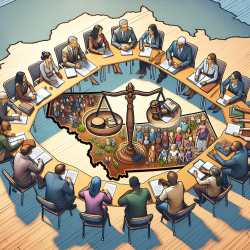When navigating the complexities of special education, disputes can arise between parents and schools. One effective way to resolve these disagreements is through IDEA mediation, a process offered by the Montana Office of Public Instruction (OPI). This blog will provide key insights into what IDEA mediation is, who can participate, and how it works.
What is IDEA Mediation?
IDEA mediation is a voluntary and free dispute resolution process required by the Individuals with Disabilities Education Act (IDEA). It aims to help parents, school districts, and public agencies resolve disputes in an informal setting, leading to a signed, legally enforceable agreement.
Who Can Participate?
Participants in IDEA mediation include:
- Parents (biological, adoptive, foster, guardians, and surrogate parents)
- Public agencies (Local Educational Agency, State Educational Agency, Educational Service Agencies, and other public agencies responsible for special education)
Is Mediation Mandatory?
No, mediation is entirely voluntary. Both parties must agree in writing to participate. If one party refuses, the mediation will not occur.
Who Pays for Mediation?
The OPI covers the costs of the mediation process, including the mediator's fee. However, the OPI does not cover the costs of a party's advocate or attorney.
When Can Mediation Be Requested?
Mediation can be requested at any time there is a disagreement about special education services for a student. This includes disputes arising before or during a due process complaint or state complaint.
What Types of Disputes Can Be Mediated?
Any dispute under Part B of the IDEA can be mediated, except in specific situations such as when a parent refuses to consent to initial special education services or revokes consent for continued services.
How to Request Mediation?
Requests must be signed by all parties and sent to the Dispute Resolution Office. A specific form is not required, but OPI’s Mediation Request Form is available to assist with the process.
Confidentiality in Mediation
Discussions during mediation are confidential and cannot be used as evidence in subsequent legal proceedings. However, signing a confidentiality agreement is not a precondition for participation.
Enforceability of Mediation Agreements
Signed mediation agreements are legally binding and enforceable in state or federal court. However, the OPI does not enforce these agreements; enforcement must be sought through the courts.
Resources for Assistance
For more information, visit the OPI Dispute Resolution webpage or contact the Dispute Resolution Office at (406) 444-2046. Additional support is available from the Montana Empowerment Center and Disability Rights Montana.
For more information, please follow this link.










